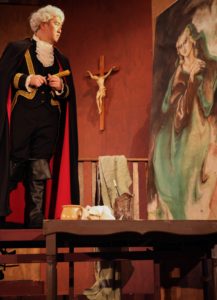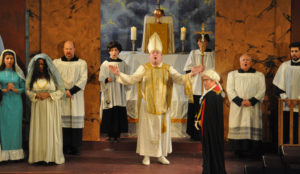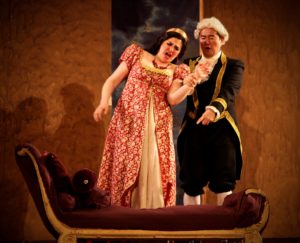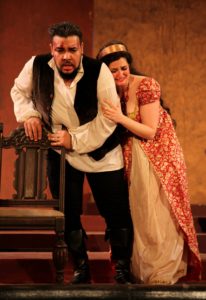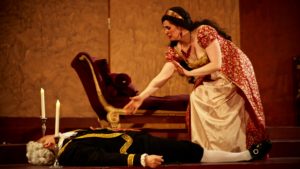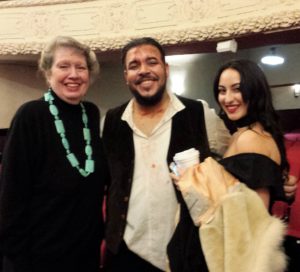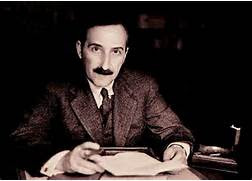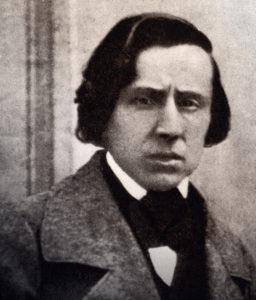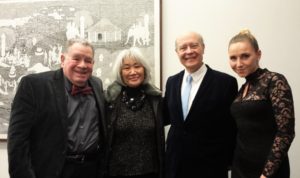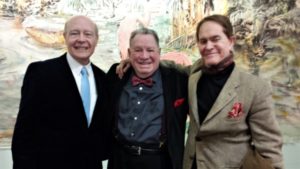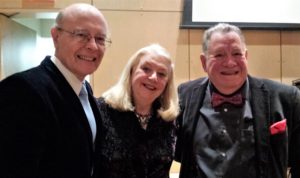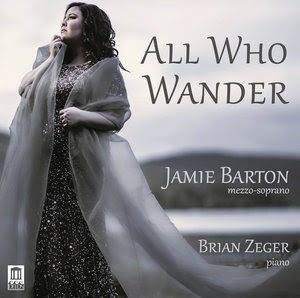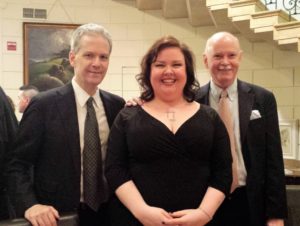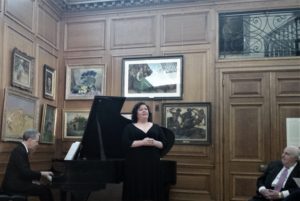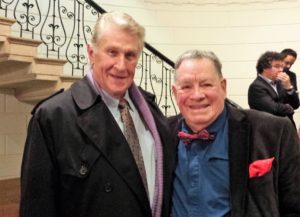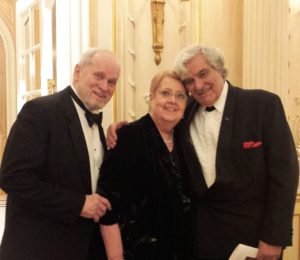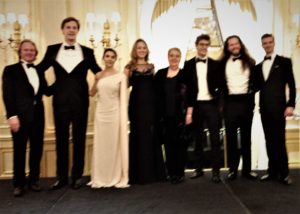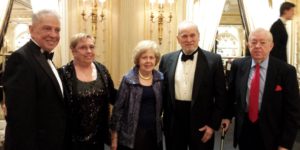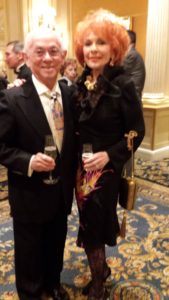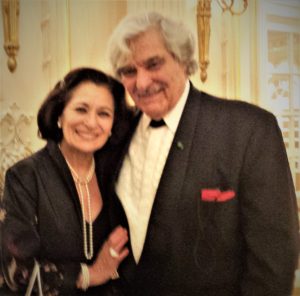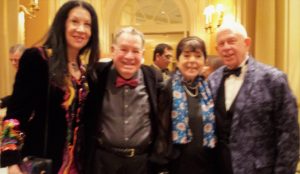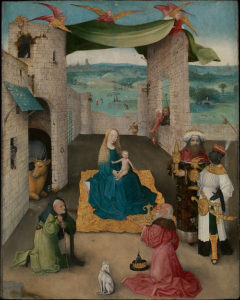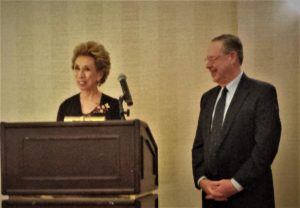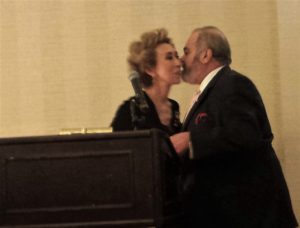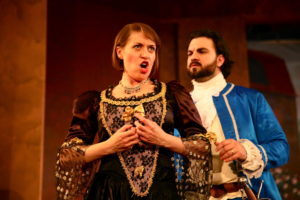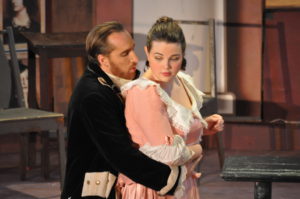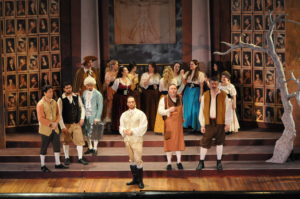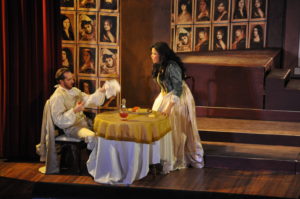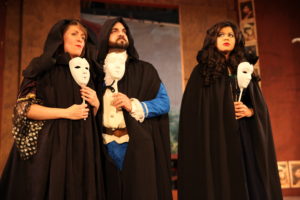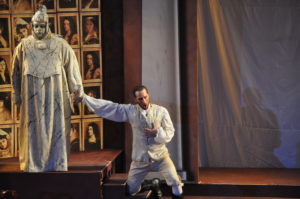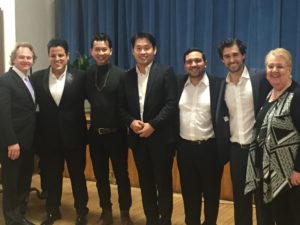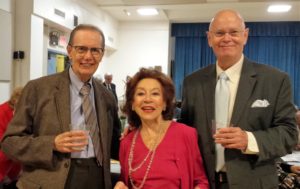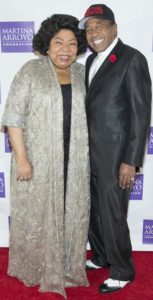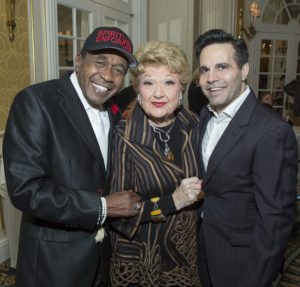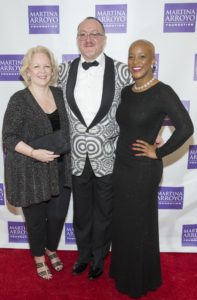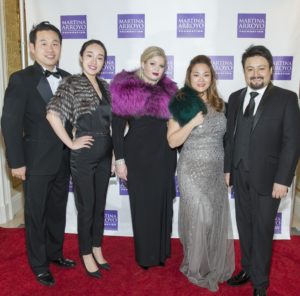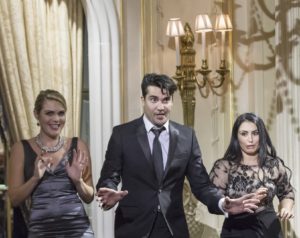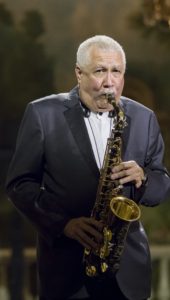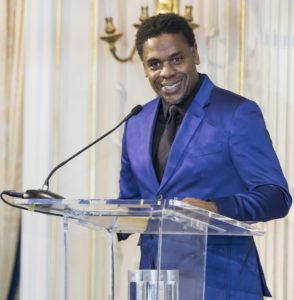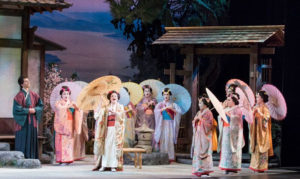
On a beautiful balmy evening on March 21st, in the fabulous city of Sarasota, Florida, the story of Cio-Cio-San, better known as Madama Butterfly, was the bait that lured opera lovers to the newly renovated and magnificent William E. Schmidt Opera Theatre. Over 1100 adoring fans watched, cheered and wept in unison, to the music of the great Italian composer Giacomo Puccini (1858-1924). Puccini’s librettists were Luigi Illica and Giuseppe Giacosa. The opera is based on a story by John Luther Long and a play by David Belasco. The opening night on February 17, 1904 was a fiasco. One of the main reasons was that Lieutenant Benjamin Franklin Pinkerton in the United States Navy, was truly the “ugly American”, had no affection for his bride, had very racist attitudes and completely lacked remorse. Puccini withdrew the work and two acts became three and he added an aria of remorse at the beginning of the last act. The revised work premiered on May 28, 1904 and as a result of the composer’s reworking and making Pinkerton more human with his touching “Addio” aria, Madama Butterfly became a mega hit and has remained so ever since. Puccini still kept working on Butterfly until 1907 when he was finally satisfied. It premiered at the Metropolitan Opera in New York, with the composer in attendance, on February 11, 1907 with the incomparable tenor Enrico Caruso as Lieutenant B. F. Pinkerton and the fabulous soprano Geraldine Farrar as Cio-Cio-San. On November 22, 1910, Enrico Caruso sang Pinkerton to Emmy Destinn’s Cio-Cio-San at the Brooklyn Academy of Music with the Metopera on tour.
The magnificent Sarasota Opera program booklet opened with greetings by Board Chairman and patron David H. Chaifetz and a message of the unity opera brings by artistic Director Victor DeRenzi. The Executive Director, Richard Russell wrote of the opening of the Steinwachs Artist Residences for Sarasota Opera, a 30 unit complex that will house 70 artists not far from the Opera House. (Steinwachs Family Foundation)
The excited crowd hushed as Maestro Victor DeRenzi and orchestra began the first act. Joanna Parisi was Cio-Cio-San. Her entrance aria “Ancora un passo” evolved from backstage until she came into view and her sumptuous soprano had a real cutting edge. In “Ieri con salita”, Butterfly reveals that she has embraced Pinkerton’s religion. In “Un po’ di vero c’è” … Oh quant occhi fisi”, her love duet with Pinkerton, Ms. Parisi went from strength to strength showing an inner fire in her vocal and physical intensity, yet a vulnerability that tweaked at the heart.

In Act Two, Pinkerton has been gone for three years and Suzuki, Butterfly’s servant doubts he will return, but Butterfly knows that one fine day he will return. The iconic aria “Un bel dì” was sung softly and accelerated into a tour de force of defiance. Ms. Parisi’s upper register, always true to the beat, never grandstanding, packs a wallop and like Cio-Cio-San’s spirit, cannot be contained. When Sharpless (U.S. Consul to Nagasaki), tries to read Butterfly Pinkerton’s letter “Ora a noi” she simply cannot tolerate the thought of his not returning. In “Sai cos’ ebbe cuore”, she tells Sharpless that she would rather die than resume her life as a geisha. The emotional intensity of her output plus Ms. Parisi’s bolts of vocal gold, moved the audience profoundly. The blossom duet “Tutti i fior” with Suzuki, Cio-Cio-San’s servant, was etched in our hearts with the two gathering up flowers and scattering them throughout the house awaiting Pinkerton’s return.
As night falls, we hear the Humming chorus and the dimming images of Butterfly, Suzuki and her son Sorrow looking out of their screen/window for Pinkerton’s ship, the Abraham Lincoln. Butterfly’s suicide aria “Con onor muore…Tu, tu piccol iddio was sung with enormous grief and resolution, coupled with defiance and determination. Butterfly’s death is unseen behind a screen as the crashing chords concluded the drama. Like the vintage poster, Butterfly (at least in this production) DOES see Pinkerton running towards her before she dies. Joanna Parisi is a name to watch – Brava!

Aside from a stunning Butterfly, there were other memorable riches in this performance. The handsome Italian tenor from Parma, Italy, Antonio Corianò sang the part of Pinkerton. It is very rare to find a good looking tenor, who can act and has a golden quality to his voice. In “Amore o grillo”, sung with Sharpless, Corianò showed his main vocal strengths, a wonderful darkish middle voice and a soaring top voice. His voice was an easy blend with Sharpless and rang out thrillingly in the uppermost reaches, especially in the climaxes to the melody of the Star Spangled Banner. In the love duet, he matched his Butterfly note for note with clear enunciation, strong and ardent phrasing and although one felt he could, he avoided the top “C” and sang the alternate ending. His final “Addio fiorito assil” was sung with all the remorse (and more) that Puccini desired. Once again, Corianò’s voice was like a volcano of tenorial splendor. Corianò’s sobbing after calling Butterfly’s name off stage was more like the finale of La bohème. Pinkerton’s holding the lifeless body of Butterfly and caressing her was the tragic comeuppance for his earlier flippancy. Antonio Corianò, obviously a new audience favorite, was cheered for his vocal gifts and artistry and mock “booed” for his vivid portrayal of this almost heartless character.
Suzuki, Cio-Cio-San’s servant was tenderly portrayed by Laurel Semerdjian whose warm ingratiating mezzo made the flower duet something special and for giving new life to her phrase “Povero Butterfly”. One could really sympathize with her conflict in trying to protect Butterfly from her misconceptions. In the end, the sand castle came down with a tsunami Suzuki could not prevent.
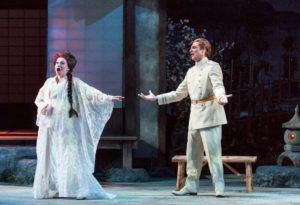
Sharpless, the American Consul in Nagasaki was in the able and dignified hands of Cèsar A. Mèndez Silvagnoli whose somewhat bland bearing was overcome by a stronger showing of emotion of Act Two. His utterance “Diavolo Pinkerton” however, was almost an afterthought.
Tenor Sean Christensen was an excellent Goro, a marriage broker and was amusing and quicksilver with a plangent and pleasing voice.
Suchan Kim was a most sympathetic Prince Yamadori and his expressive baritone made his portrayal a memorable one.
The part of the Uncle Bonze, was acted and sung with exceptional fierceness by Young Bok Kim. Uncle Bonze ruins Butterfly’s wedding day by his denunciations of her leaving the faith of their ancestors to embrace Pinkerton’s. Kim’s boorish behavior and beguiling basso made quite an impression.
Baritone Matthew Ciuffitelli (apprentice artist) was the Official Registrar, bass Hans Tashjian was the Imperial Commissioner and baritone Jumbo Zhou was Yakusidé. Kate Pinkerton (Pinkerton’s American wife) was played with appropriate dignity by apprentice artist contralto Rachelle Moss, mezzo Molly Burke as Cio-Cio-San’s mother, Nicole Woodworth mezzo as Cio-Cio-San’s Aunt and Jennifer Dryer soprano as Cio-Cio-San’s cousin – all colorful and efficient! Sorrow, Butterfly and Pinkerton’s child was adorably played by Quinn Krug with acceptance and grace. The image of a blindfolded Sorrow clutching the American flag, with his mother’s body nearby, haunts the mind. Cio-Cio-San realizes that Kate Pinkerton and Pinkerton have come to take Sorrow. There was no other course than suicide, like her father, rather than live with dishonor.

Maestro Victor DeRenzi, whose nearly three decade record breaking triumphant Verdi festival ended recently, proved himself a master of Puccini as well. The Sarasota Opera Orchestra and the Maestro played as one. The violins in the love duet were heavenly and the pounding of the tympani in the death scene was indelible. The inter-act prelude was Wagnerian in scope and a tornado of this tragic tale swirling in brilliant harmony. The concluding discordant note further compounds the tragedy that has just been told.
Maestro Victor DeRenzi fully deserves the accolades and his title of Cavaliere dell’ordine della Stella d’Italia (Knight of the Order of the Star of Italy) recently bestowed on him by the Italian Government.
Stage Director John Basil gave us rhapsodic love scenes with solid movement and flowing action.The death scene was vivid and Butterfly’s crawling towards Sorrow had great impact!
Scenic Designer David P. Gordon gave us color with brilliance and copious Japanoiserie. The sets with screen door house, mountains, trees and changing blossoms was like being in Nagasaki, no “updates” here! Puccini rustically and royally served. No wonder the SRO audience applauded the sets so enthusiastically!

Costume Director Evan Ayotte gave us costume glory to cherish with many colorful kimono’s, parasols and fans.
Costume Coordinator Howard Tsvi Kaplan’s hand surely has the magic touch with special attention to detail. The costumes, flowers in the hair and bowing in unison were evidence that “little things mean a lot”- especially as part of operatic spectacle.
Ken Yunker’s lighting concepts were especially cherished in the love duet when the pinkish hues became purplish as dusk approached and then out came the galaxy of stars.
Hair and make up by Joanne Middleton Weaver were never garish or stereotypical but were colorful and dazzling.

The Choral Master Roger L. Bingaman deserves kudos for the delicacy and nuance of the chorus especially in the “Humming” chorus that concludes Act Two.
The subtitles by Victor DeRenzi were helpful and concise. Such lines as Butterfly’s “At 15, I am already old”, struck a chord!
Judy and I wish to thank the staff of the Sarasota Opera for their many courtesies and kindnesses. Especially fellow Brooklynites, who were born or resided in Brooklyn, Richard Russell, Executive Director, Samuel Lowry, Director of Audience Development and a Happy Birthday to Sam’s Mom Becky Lowry, who is really 39 but turns 70 soon. Also our neighbor, Greg Trupiano, longtime Director of Artistic Administration; see you on the 61 bus, Greg!
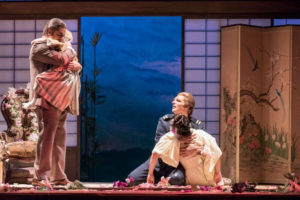
Nice to see the name of Francesca MacBeth in Stage Management. She is the vivacious daughter of New York born Maestro Victor DeRenzi and New York City Opera singer and acclaimed Stage Director Stephanie Sundine.
The sparkling and wonderful city of Sarasota, Florida has great climate, great culture and a treasure chest of wonderful memories from the Sarasota Opera on Pineapple Avenue and Verdi Square!

